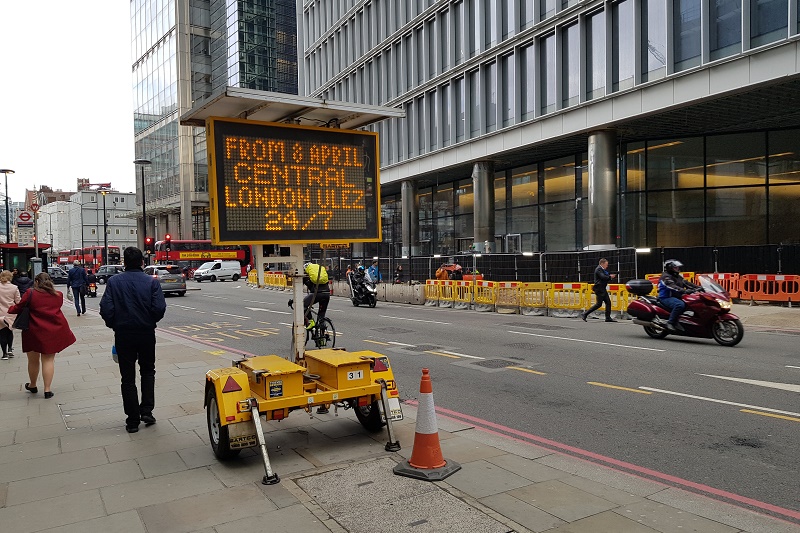
Nearly 700,000 car drivers in Greater London could be liable to pay the £12.50 Ultra-Low Emission Zone (ULEZ) charge when the scheme expands in August 2023, a FOI request made by the RAC reveals.
As of 22 February 2023, DVLA data shows a total of 691,559 licensed cars in the whole of Greater London were either petrol cars first registered prior to January 2006 or diesel cars registered prior to September 2015 – the key dates for meeting ULEZ standards.
This figure rises to 851,065 when counting all non-compliant vehicles, rather than solely cars.
But the RAC says that the number of drivers affected once the zone expands is likely to be far higher when taking into account vehicles entering from bordering counties such as Kent, Hertfordshire and Essex.
TfL estimates that around 160,000 non-compliant cars a day currently drive in the area that will become part of the expanded zone later this summer. Drivers of affected vehicles who do not pay the £12.50 daily charge will be fined up to £160.
Nicholas Lyes, RAC head of roads policy, said: “Cleaning up London’s air should undoubtedly be a priority, but the sheer number of vehicles that don’t meet ULEZ emissions standards in Greater London suggests there will be a massive financial impact on motorists and businesses through having to fork out £12.50 every day they drive in the zone.
“We desperately need more co-ordination between the Mayor and the Government to help small businesses, tradespeople, NHS staff and carers who have no choice but to drive into the expanded ULEZ for work purposes from outside Greater London. Consideration should also be given to those who work at night when public transport is greatly reduced in the outer boroughs.
“Changing to a compliant vehicle at such short notice simply won’t be something many will be able to afford, especially during a cost-of-living crisis and at a time when second-hand car prices are so high.”
The findings of the RAC’s FOI request come a day after TfL published its own data showing that 90% of cars seen driving in outer London on an average day meet the ULEZ standards.
TfL says the figures show the effectiveness of the scheme in encouraging people to switch from older, more polluting vehicles. It expects that when the expansion comes into effect, the proportion will be even higher.
In November 2021, TfL estimated car compliance at 85%, up from around 75% estimated from earlier analysis of cars seen in June 2020.
Sadiq Khan, mayor of London, said: “I have always been clear with Londoners that the aim of the ULEZ is to get the most polluting vehicles off our roads in order to protect both the health of Londoners and our environment.
“This new data shows people, businesses and charities understand the impact of air pollution on health and are preparing for the change. With this jump in compliance, it’s now just one in ten cars seen driving in outer London that aren’t ULEZ compliant – a fantastic result.”
To help mitigate the impact on drivers and businesses, Mr Khan launched a £110m scrappage scheme which offers those eligible up to £2,000 towards buying a compliant vehicle.
However, the RAC doesn’t believe this goes far enough.
Nicholas Lyes added: “We need more creativity from London’s mayor and his team to help people out as the current scrappage scheme is akin to using a plughole to drain an Olympic-sized swimming pool – it’s simply not big enough for the scale of the job.
“We believe he should consider introducing an additional one-year sunset period for certain key workers or a scheme where TfL partners with a leasing company to provide discounted, ULEZ-compliant vehicles to smaller businesses or traders, enabling them to avoid daily charges while still reducing roadside emissions.”
Comment on this story